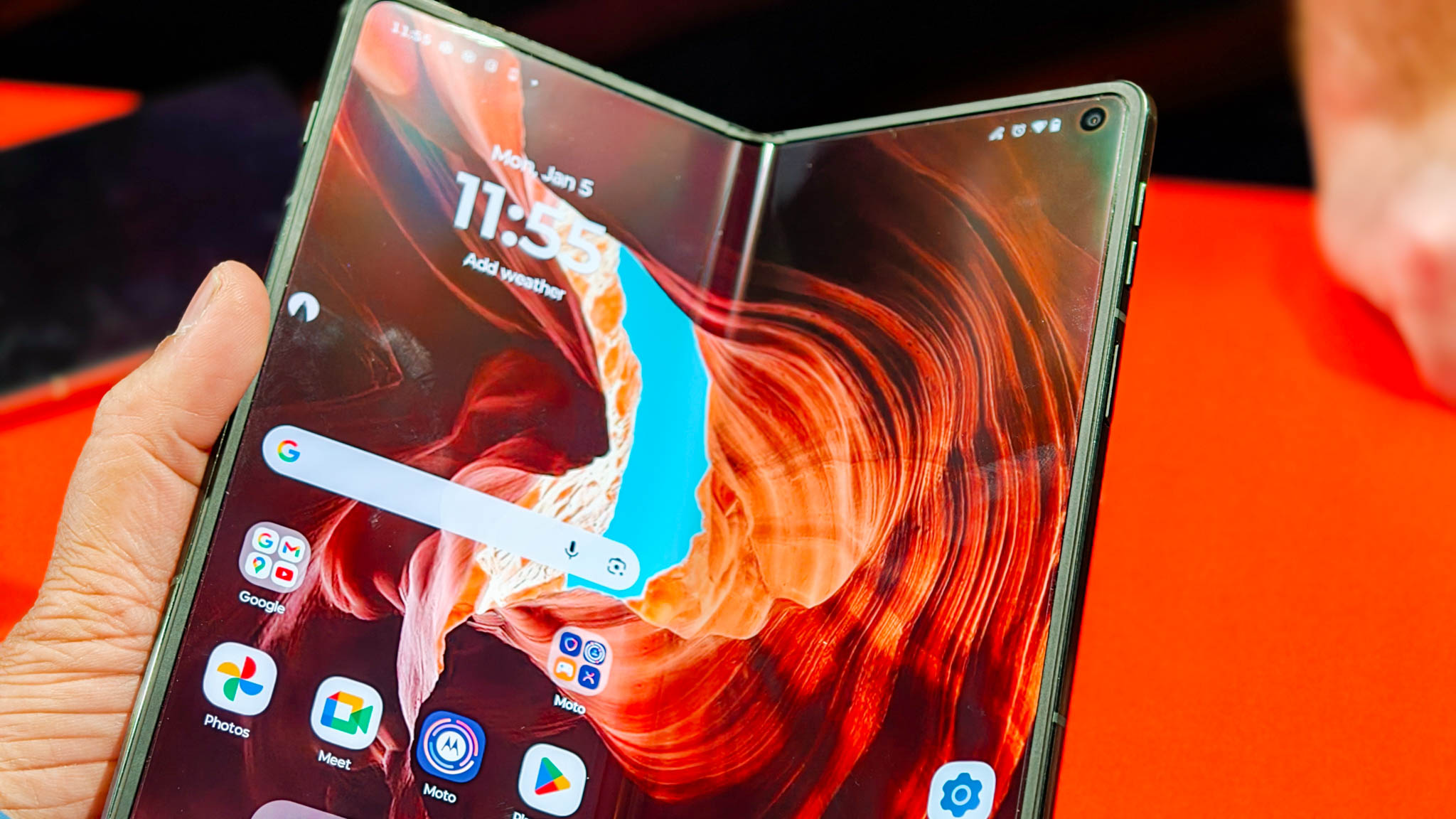Is Apple waiting too long to make a foldable phone?
Like Valve, Apple works on its own schedule.
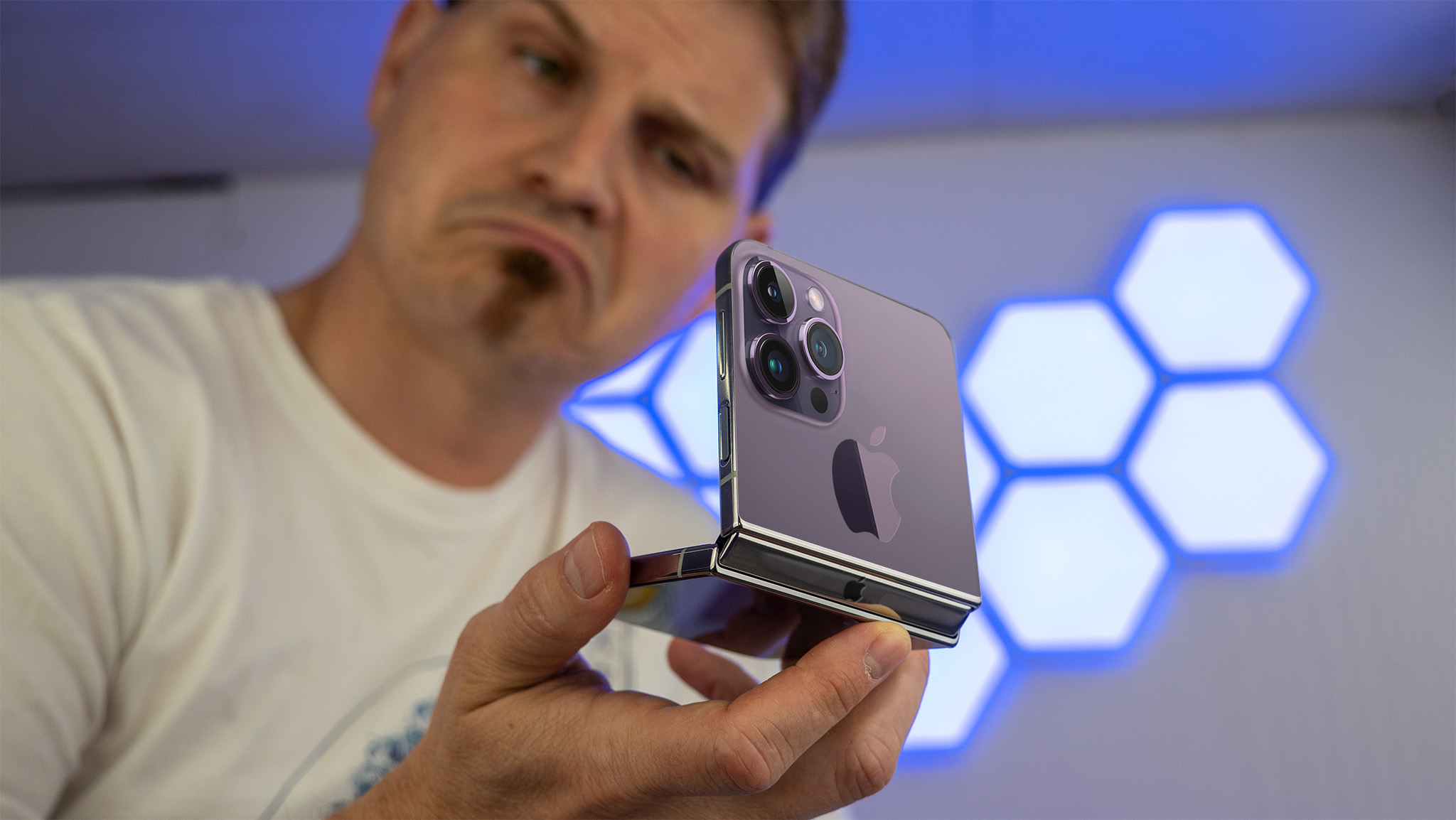
While Samsung continues to forge ahead and push foldables as the next big thing in mobile tech, many folks have been wondering if Apple has also been working on a folding iPhone. At this point, Apple is four years behind Samsung and other OEMs who have been working on foldable phones, and it begs the question: is Apple waiting too long to make a foldable phone?
As we've seen many times over, Apple works on its own schedule. It often introduces features that Android phones have had for years — occasionally introducing something actually innovative like Dynamic Island or emergency SOS satellite connectivity — and typically introduces them as if they had never existed in the past.
They won't be able to do this with something as physically obvious as a foldable phone, but there's little doubt that Apple will make huge waves when it eventually releases its first foldables. But will it really matter by the time they get around to it, and will Apple users even care?
Great artists steal
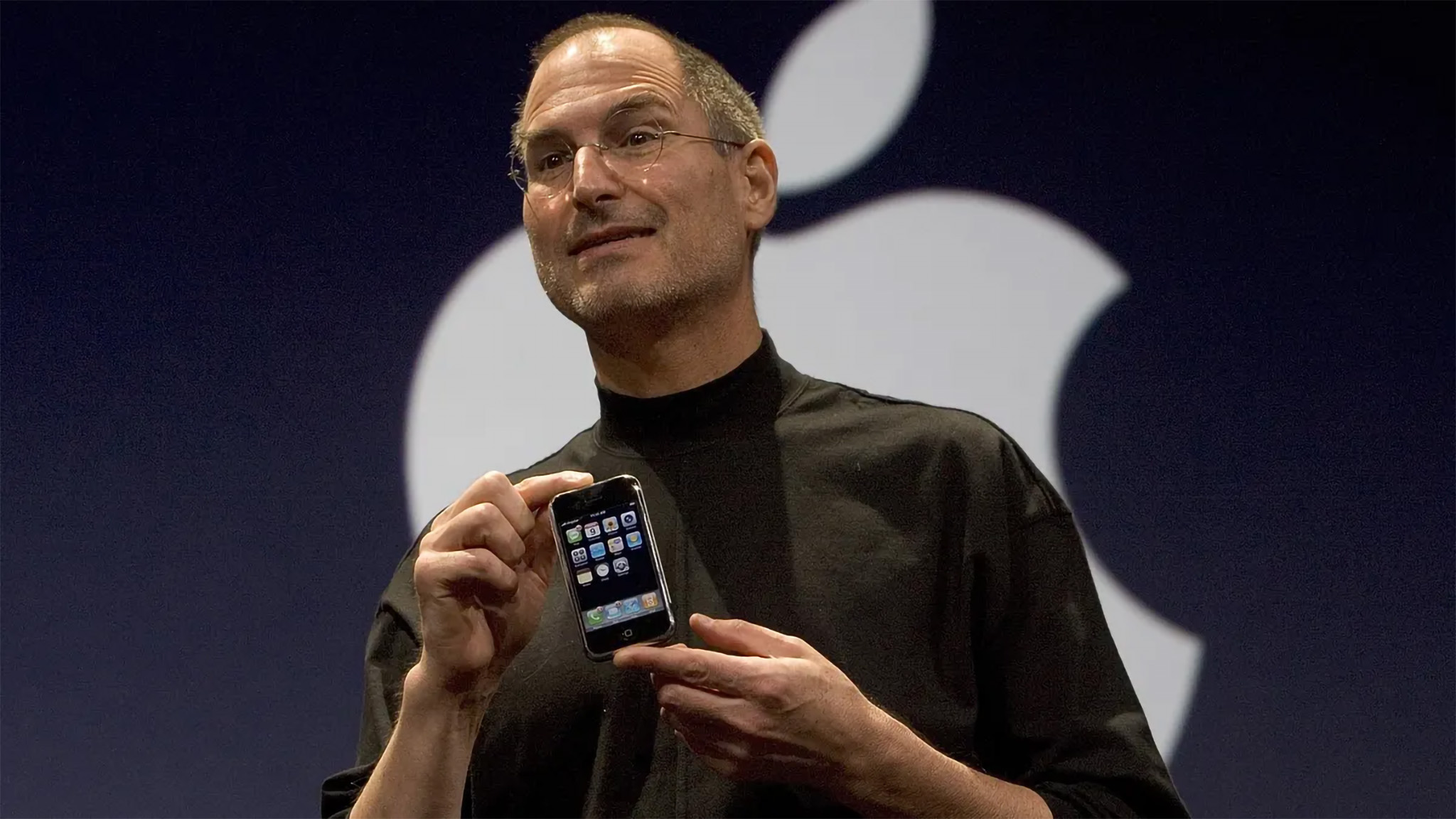
When the iPhone was first announced, it promised a revolutionary experience unlike any smartphone that had come before it. Apple didn't invent the smartphone, it reinvented it, to quote Steve Jobs himself.
At the time, many pundits wondered whether or not the phone would take off. After all, it couldn't even record video, and Jobs' play at smarter software didn't extend beyond what was included with the phone — there were no apps that you could install, despite other smartphones offering the option.
Furthering that notion, the iPhone didn't invent the modern touch screen aesthetic. That honor actually goes to the LG Prada, which launched the previous year in 2006 and not only featured the now-standard look of a full-screen smartphone without a keyboard but also launched capacitive touch technology to the market.
But LG's weak marketing was no match for Apple's prowess. Additionally, the obvious user interface improvements that shipped with the iPhone — along with Jobs' usual penchant for words like 'revolutionary' and 'magic' — helped spur Apple's product forward in a way others hadn't, even if it wasn't the first product of its kind in every single way.
Get the latest news from Android Central, your trusted companion in the world of Android
Fast-forward to over a decade later and Samsung introduced the world's first commercially available folding phone. While it didn't offer a substantial user interface improvement or some revolutionary software feature to claim to its name, it did offer something consumers hadn't been able to buy before: glass that can bend without breaking.
Just as it has with displays over the years, Samsung pioneered ultra-thin glass that gives designers a new way to deliver a full-screen phone without the added bulk that comes from a modern smartphone size.
But, as Samsung clearly "borrowed" from Apple's innovations in UI over a decade ago, it's entirely likely that Apple will "borrow" Samsung's displays and foldable technology when it eventually announces a foldable iPhone sometime in the future.
The difference this time is that Samsung wins, no matter who ultimately is crowned the victor of the foldable phone wars. That's because Samsung makes almost every single foldable display you'll find in the market today — the exception being BOE Display, a Chinese firm that makes foldable displays for the Motorola Razr and Huawei's foldable devices.
TCL and Royole — two other foldable display manufacturers — have yet to introduce any kind of successful consumer product with a foldable display. Based on what we know, that's not set to change any time soon.
Will Apple reinvent the folding phone?
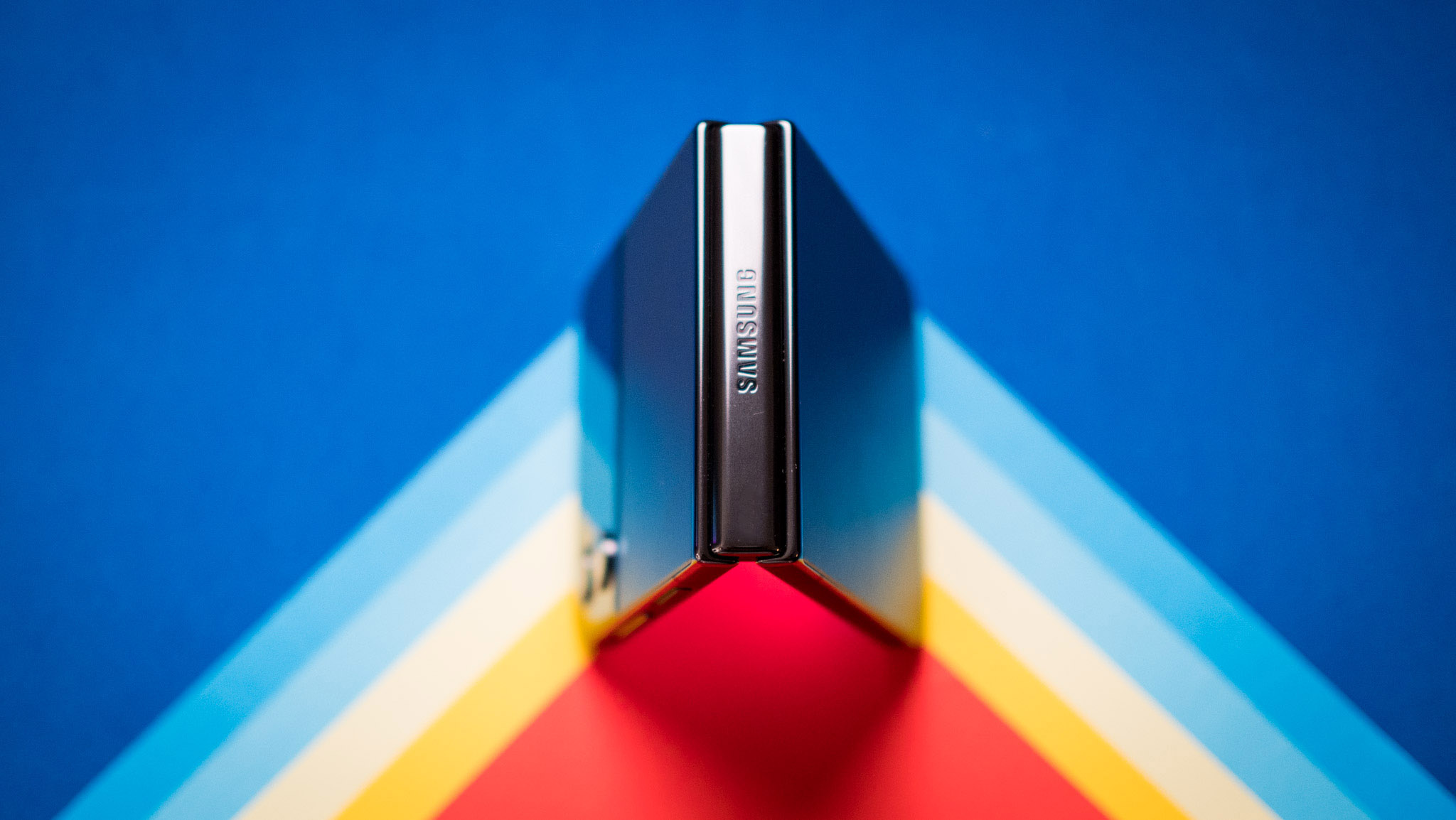
History often repeats itself and, logically, one would wonder whether or not Apple will reinvent the folding phone when it does finally launch one in the future. So what is taking so long and will Apple be too late to make a difference?
I spoke with Ben Bajarin, CEO and principal analyst at Creative Strategies in California, who says he thinks "Apple is still working out the technology kinks around this product and won't release anything until they believe it passes their quality bar on all levels."
If I had to guess, I'd say Apple is probably waiting until the display crease is either almost non-existent or completely gone. After all, we've already determined that current-generation Samsung foldables are incredibly strong and can withstand hundreds of thousands of folds before needing some TLC.
"Given patents have shown up around this form factor from Apple," Bajarin says, "it shows they are exploring it but it is likely they believe both the technology and the market is not ready yet."
Last year, we saw Samsung's biggest sales increase ever, mostly thanks to the Galaxy Z Flip 3, and this year's Galaxy Z Flip 4 is slated to sell even more units. Samsung sold around 10 million foldables last year. While that's a drop in the bucket compared to the overall 235.7 million phones Samsung sold in 2021, it's roughly half the number of Galaxy S21 phones they sold, which makes the number far more impressive in context.
Still, Samsung's best-selling line is the Galaxy A-series, which often makes our list of best cheap Android phones every year.
Comparatively, Apple sold 233 million iPhones in 2013, the top five models being premium-grade phones with high price tags and higher profit margins.
I asked Bajarin if the profit margins could be what is keeping Apple from releasing a foldable right now, but he didn't think so, saying "not necessarily, they can charge enough for something like this if they want to keep their margins. I think the main issue is they just don't think the technology or the experience is ready for the mass market yet."
After all, if Samsung can get away with charging nearly $2,000 for its most premium foldable, Apple certainly can.
Better late than never
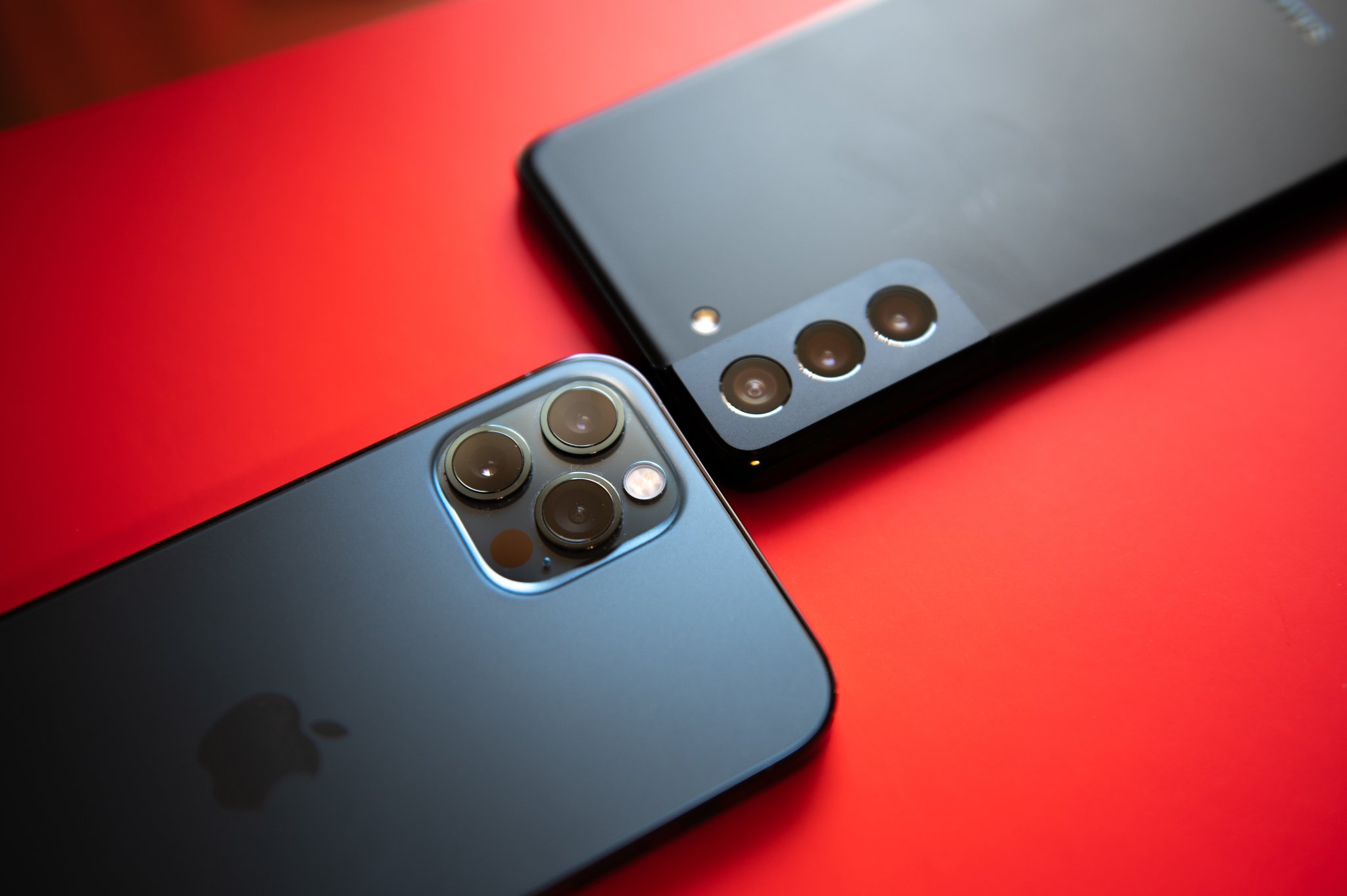
In many ways, being late to a party in the tech sphere isn't a bad thing. You give other companies time to work out the kinks — in some cases, literally — and come out looking like a hero when you deliver a product right the first time.
It's entirely likely that people wouldn't consider foldable phones fragile if Samsung had gotten it right out of the gate. If you recall, the first-generation Galaxy Fold has serious durability issues, was recalled, and eventually was replaced with a better product. But that first impression is what lasts in people's heads, and Samsung has had to do a lot of repair work over the past four generations to ensure people that its foldables are ready for real life.
When Apple does eventually release a foldable iPhone — and it absolutely will — sales will almost certainly eclipse that of any foldable before it. Apple might not have the world's largest market share of phones — just 233 million of 1.39 billion units sold in 2021 was an iPhone — but it does have the single-largest volume of premium phone sales of any company, and that's exactly what a foldable phone is right now. A premium device.
As Bajarin puts it, "Apple's customers are extremely loyal as they have one of the most loyal customer bases of any company." When the foldable iPhone hits, it'll be a big hit, and that's about all that needs to be said about that.

